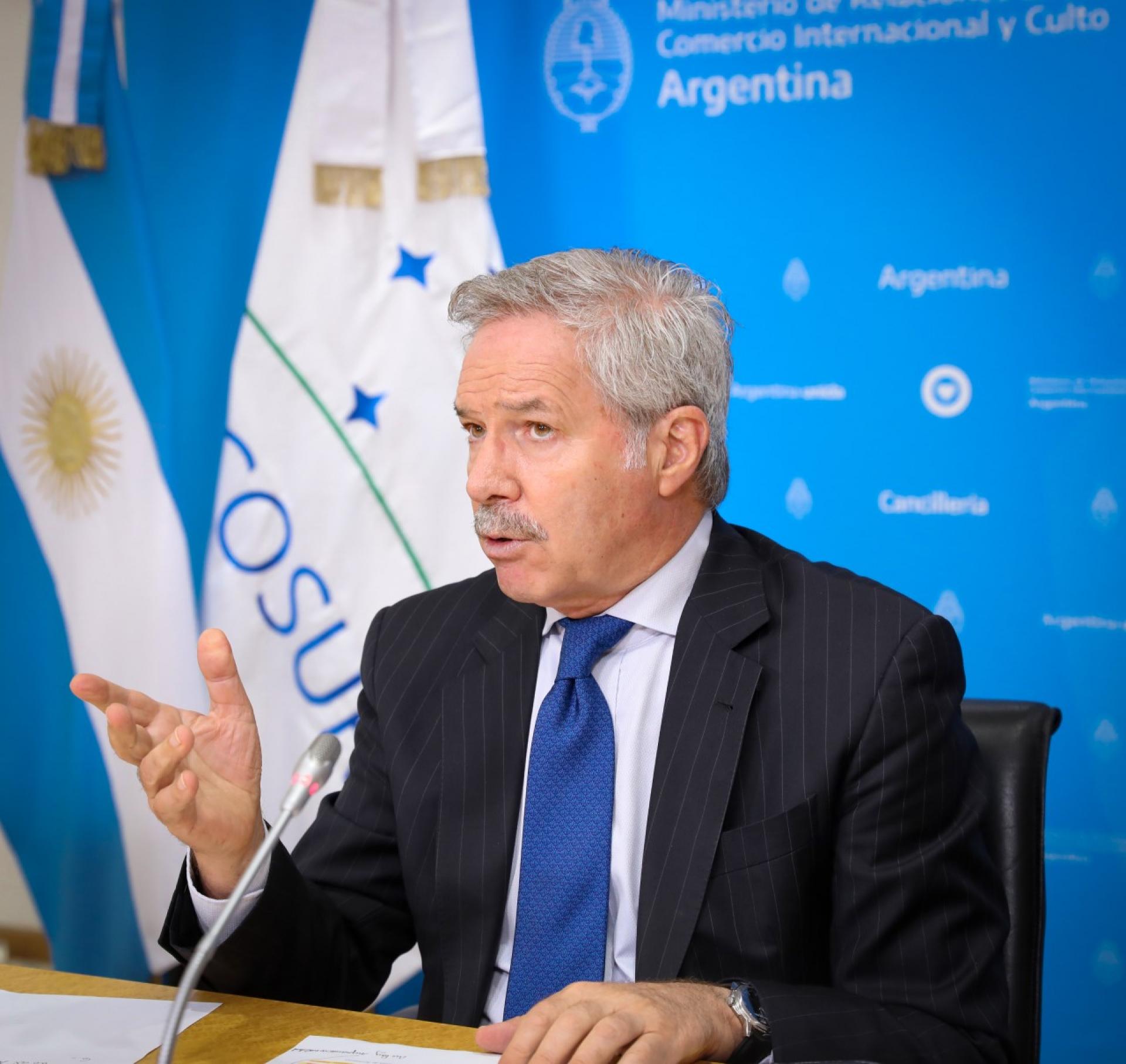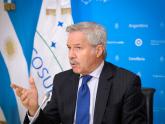The day before the 30th anniversary of the creation of Mercosur, which brought together the Presidents of Argentina, Brazil, Paraguay, Uruguay, Bolivia and Chile at a virtual meeting, Foreign Minister Felipe Solá held a working meeting with executives from the Mercosur Industrial Council (CIM), made up of the business chambers of the region, in order to address the present and future challenges faced by the economies of the region.
At the meeting, Solá and the industrial representatives discussed the status of the external negotiations conducted by the bloc, as well as the problems to access new markets and the proposal to review the Common External Tariff (AEC).
Upon characterizing Mercosur as a platform for economic development and international integration, Solá highlighted the network of trade agreements signed by the bloc and Latin America, as well as the free trade agreements with Israel and Egypt, and the preferential agreements with the Southern African Customs Union and India. Moreover, he recalled that “we are conducting negotiations −which are at different stages− with eleven countries or groups of countries, including Canada, South Korea, Singapore, Israel and Lebanon”.
As regards the agreements signed with the European Union and the EFTA, Solá stated that “they are almost concluded but have come to a standstill, though Mercosur is not responsible for that”. Such agreements “have implied a change in mindset and, in this regard, Argentina has put a lot at stake. Once it (the Mercosur-EU agreement) is signed, we will send it to our Congress for approval. We must respect the work done although, in my opinion, negotiations ended too soon. We are finally there, and this agreement opens up opportunities for new agreements”, added the Minister.
Accompanied by the Chief of the Private Office of the Foreign Ministry, Guillermo Justo Chaves, Solá considered that a revision of the AEC must be “pragmatic and rational” and “its ultimate goal must always be to prevent increased competitiveness from damaging our economies and employment”.
In addition, the Foreign Minister stated that, due to the transformation of economies and international trade as a consequence of the pandemic, such a revision must aim at regional partnership. He also stressed that “in view of the weakening or decline of global value chains, we must seek to strengthen regional value chains, which implies greater integration. We are stronger to open to the world if we are together. The integration principle must always come before the openness principle”.
Moreover, Solá highlighted that “the bloc has the obligation to admit that it is subject to major fluctuations and changes, and that it must tackle and overcome them”. He added that “challenges face the whole bloc” and we must “be willing to put ourselves into the other’s shoes”.
The Foreign Minister also acknowledged that “structural asymmetries exist” within the bloc and referred to the importance of the Structural Convergence Fund (FOCEM) as a mechanism for reallocating integration costs and benefits, but he added that “it is not enough to even up”.
The Mercosur Industrial Council (CIM) comprises the Argentine Industrial Union (UIA), the Brazilian Industrial Council (CNI), Uruguayan Chambers of Industries (CIU), and the Paraguayan Industrial Union (UIP).


